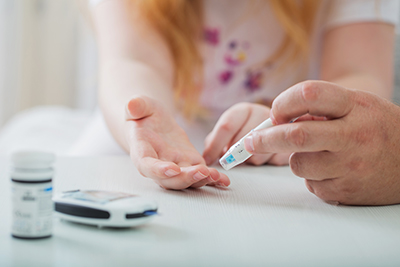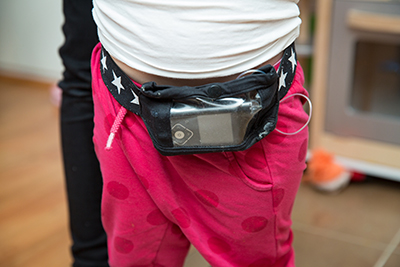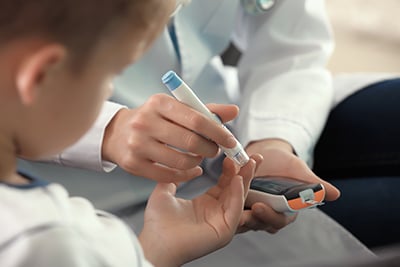Diabetes
Contact the Diabetes Clinic
Administration and appointments: call 514-412-4436 or send an email to [email protected]
Please call: 514-412-4400, ext. 53333 and ask for the pediatric endocrinology doctor who is on-call
On-call Endocrinologist
514-412-4400, ext. 53333Diabetes nurses
Social Services
Send your request
Diabetes
The MCH Diabetes Clinic provides care for children and adolescents with type 1 and type 2 diabetes. We also hold external clinics at Hygea Medical Clinic, Brunswick Medical Center.
Team
Doctors
Dr Anne-Marie Sbrocchi
Director of Endocrinology
Julia E. von Oettingen
MD/PhD, MMSc, FRCPC (Diabetes Program Director)
Robert D. Barnes
MD, MSc, FRCPC
Nurses
Charleen Magee
M.Sc.A.RN
Sara Séguin-Plourde
MScN, RN
Sandra Kambites
BScN
Sarah Tremblay-Rouleau
PNP, MScA
Nutritionists
Maude Lafontaine Hébert
BSc., DtP
Lisa Piperno
DtP
Rosemarie Cianci
DtP
Social worker
Dawn Davis
MSW
Diabetes teaching guidebooks
Nutrition
Food affects your body! When you have diabetes, it also affects your blood sugars. That’s why nutrition management is an important part of taking care of your diabetes.
Blood sugar monitoring

Blood sugar monitoring devices help you and your child keep track of blood sugar levels, trends and patterns. They also allow for easy data-sharing with our diabetes team. When monitoring your child’s blood sugar level, please make sure to fill out the MCH Blood sugar logbook.
Get the most from your devices:
- Use event markers (amount of carbohydrates, doses of insulin and physical activity).
- Review blood glucose data weekly. If your child is old enough, go over it with them.
- Make sure data is uploaded before each visit to the clinic and before each phone call with a nurse.
Data sharing options:
Freestyle Libre
Therapy management system: LibreView
Data-sharing code: 83-17752.
Libreview explanatory video
Technical support: 1-800-461-8481
Dexcom G6
Therapy management system: Glooko
Data-sharing code: mchd
Glooko’s help centre
Technical support: [email protected]
Guardian Connect
Therapy management system: Carelink
Email your username and password to the diabetes nurses so they can log in to see your child’s data.
Technical support: 1-800-284-4416
School and daycare

As a parent, you are responsible for informing the school team about your child’s diabetes and showing them how to perform a blood sugar test, give insulin injections, treat hypoglycemia, use the continuous blood glucose monitor and other important steps in your child’s care routine.
- Organize a meeting with your child’s school or daycare at the time of diagnosis, before the start of each school year and upon your child’s transfer to another group at daycare.
- Invite the following members of the staff: school nurse, principal, homeroom teacher, gym class teacher, secretary, child care services representative,and any other professional who is responsible for your child at school.
- Choose the one of the following documents to share with the school staff:
Insulin pumps

Medtronic
Therapy management system: Carelink
Email your username and password to the diabetes nurses so that they can log in to see your child’s data.
Technical support: 1-800-284-4416
Tandem and Omnipod
Therapy management system: Glooko
Data-sharing code: mchd
Glooko’s help centre
Technical support: [email protected]
Additional documents:
Research
Contact your doctor if you’re interested in learning about ongoing research studies and find out if you’re eligible to participate in any of them.
Get involved with the BETTER project, led by researchers, health professionals and people living (or whose children are living) with type 1 diabetes in Canada.


